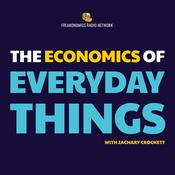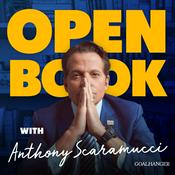51 episodes
Coal Still Powers Much Of India’s Industry. Why Does It Remain A Troubled Sector?
04/2/2026 | 37 mins.In this episode, journalist Puja Mehra speaks with Subhomoy Bhattacharjee, Journalist and Contributing Editor at Business Standard, about the paradox at the heart of India’s coal economy—why the country is sitting on large coal stocks even as it continues to import coal for power generation. They discuss how India’s transition from coal shortages to apparent surplus masks deeper structural problems in production, transportation, pricing, and quality.
Drawing on recent data and policy decisions, Bhattacharjee explains why domestically mined coal often fails to reach power plants economically, how high rail freight costs and geographic mismatches distort supply, and why many plants prefer imported coal despite higher headline prices. The conversation also examines the opening up of coal mining to private players, the weakening of Coal India’s monopoly, and the push towards market-driven coal pricing through proposed coal exchanges.
The discussion concludes by looking ahead to India’s energy future, assessing whether coal consumption has peaked, how rising electricity demand from data centres and the AI economy could reshape power needs, and why coal is likely to remain central to India’s power mix for years to come. Tune in for insights on what India’s coal surplus reveals about infrastructure bottlenecks, market design, and energy policy.
CHAPTERS
(00:00) Introduction to India’s Coal Economy
(02:00) The Coal Surplus Puzzle
(04:00) Why Coal Isn’t Reaching Plants
(06:30) Transport Costs and Rail Bottlenecks
(09:00) Imported Coal vs Domestic Coal
(11:30) Why Plants Aren’t Near Mines
(14:00) Pollution and Poor Plant Location
(16:30) Private Miners and Rising Production
(18:30) Can Coal India Adapt
(21:00) Coal India’s Financial Health
(23:30) Employees and Market Transition
(26:00) Coal Pricing and Linkages
(28:00) Has India’s Coal Use Peaked
(30:30) AI, Data Centres and Power Demand
(33:00) Global Coal Demand Outlook
(35:30) Nuclear Power and the Future
Register for India Finance and Innovation Forum 2026
https://tinyurl.com/IFIFCORE
For more of our coverage check out thecore.in
Subscribe to our Newsletter
Follow us on:
Twitter |Instagram |Facebook |Linkedin |Youtube- In this episode, journalist and author Puja Mehra speaks with economist Dr. Jahangir Aziz, Economist (Head Emerging Market Economics) at JPMorgan and a former finance ministry official, about what India’s upcoming Union Budget can realistically achieve amid slowing nominal growth and weak private investment. They discuss how the government’s commitment to fiscal consolidation shapes budget choices, even as tax revenues soften and demand remains constrained. Drawing on recent fiscal outcomes, inflation trends, capital market dynamics, and historical episodes such as the global financial crisis, Aziz explains why India’s investment slowdown is no longer cyclical but structural. He unpacks the widening disconnect between strong headline growth and persistently low core inflation, arguing that sustained disinflation signals excess capacity, weak pricing power, and a chronic shortfall of demand. The conversation examines why corporate investment has stagnated for over a decade, how rising industry concentration and limited sectoral churn are dampening incentives to invest, and the role underdeveloped corporate bond and private credit markets play in constraining medium-term financing for firms. Aziz also assesses the limits of budgetary action, the risks of an increasingly intrusive regulatory approach to capital markets, and the implications of slowing nominal GDP for earnings, debt dynamics, and fiscal space. The discussion concludes with reflections on why focusing narrowly on fiscal prudence and “Goldilocks” narratives risks overlooking deeper structural constraints to growth. Tune in for insights on what India’s macroeconomic signals reveal about demand, investment, market concentration, and the policy challenges that lie beyond budget day.
(00:00) Introduction
(00:27) Fiscal deficit and budget strategy
(02:57) Customs duties and tariff constraints
(05:10) Deregulation beyond the budget
(07:30) Capital markets and lack of reform
(11:52) Lessons from the 2008 crisis
(14:57) Corporate credit and market failures
(19:57) Nominal GDP growth concerns
(23:11) Explaining economic slack simply
(26:22) Investment slowdown and policy limits
(29:10) Structural causes of weak investment
(33:14) Industry concentration and ministries’ role
(34:40) Closing remarks
For more of our coverage check out thecore.in
Subscribe to our Newsletter
Follow us on:
Twitter |Instagram |Facebook |Linkedin |Youtube - In this episode, journalist and author Puja Mehra speaks with economist Partha Chatterjee and Dean of Academics at Shiv Nadar University. They talk about how the Indian economy is really performing beneath the headline numbers and what recent data signals about growth prospects through 2026. Drawing on the latest GDP estimates, inflation readings, labour market indicators, and credit trends, Chatterjee explains why strong real GDP growth and low inflation—hailed by the Reserve Bank of India as a “Goldilocks” phase—mask growing imbalances across sectors. He unpacks the widening gap between real and nominal GDP growth, the emergence of deflationary pressures in agriculture and parts of manufacturing, and why subdued price growth has serious implications for incomes, profitability, and government finances. The conversation examines the sources of current demand, including public capital expenditure, rising household credit, and the expanding role of cash transfers, and questions how sustainable this mix is over the medium term. Chatterjee also assesses the limits of industrial policy tools such as PLI schemes, their weak employment impact, and the risks posed by slowing job creation, stagnant rural wages, and rising import dependence. The discussion concludes with reflections on the policy trade-offs facing the government and the RBI, and why characterising the economy as “Goldilocks” risks complacency at a time of heightened global volatility. Tune in for insights on what India’s growth numbers reveal—and conceal—about jobs, incomes, fiscal space, and economic resilience.
For more of our coverage check out thecore.in
Subscribe to our Newsletter
Follow us on:
Twitter |Instagram |Facebook |Linkedin |Youtube - In this episode, journalist and author Puja Mehra speaks with trade policy expert Ajay Srivastava, founder of the Global Trade Research Initiative (GTRI), about the impact of steep US tariffs on India’s exports and what the latest data reveals about the state of India–US trade negotiations. Drawing on sector-wise export trends, Srivastava explains the puzzling two-step trajectory in India’s exports to the US—a sharp initial fall followed by a partial recovery even as tariffs climbed to 50%—and outlines why this resilience may be driven by temporary adjustments.
He also examines whether India can realistically diversify away from the US market, why such shifts are slow and constrained by India’s export basket, and how global competition—particularly from China—limits alternative options. The conversation also touches on India’s recent spurt of free trade agreements, arguing that they reflect a revival of stalled negotiations rather than a fundamental shift in trade strategy. The discussion highlights why the India–US talks go far beyond a conventional trade agreement, touching on agriculture, domestic policy autonomy, and strategic concerns that India has consistently treated as red lines. Tune in for insights on what the trade data signals about India’s negotiating space, the costs of prolonged uncertainty, and the limits of compromise in a high-stakes economic relationship.
(00:00) Setting the India–US trade context
(00:42) Sharp export decline and partial rebound
(02:44) Why exports revived despite higher tariffs
(03:06) How exporters are sharing tariff losses
(05:33) Why the recovery may not last
(06:44) Is export diversification really happening
(09:27) Why tariffs won’t speed negotiations
(10:12) Trade deal versus strategic demands
(12:34) Employment risks from prolonged tariffs
(13:13) India’s non-negotiable red lines
(14:21) What India can realistically offer
(15:57) Country-specific versus MFN concessions
(16:45) Are India’s FTAs a strategy shift
(18:35) Why FTAs are being fast-tracked
(19:16) Using data to read trade signals
For more of our coverage check out thecore.in
Subscribe to our Newsletter
Follow us on:
Twitter |Instagram |Facebook |Linkedin |Youtube - In this episode, journalist and author Puja Mehra speaks with economist N. R. Bhanumurthy about the rise of women-focused cash transfer schemes and what they reveal about India’s social policy priorities. Drawing on his evaluations of early pilots in Madhya Pradesh that shaped the Ladli Behna programme, Bhanumurthy explains why cash outperforms kind transfers, how implementation improved with better beneficiary identification and payment systems, and what the evidence shows about nutrition gains for women and children.
He also addresses concerns that these schemes are becoming political tools or crowding out spending on health and education, arguing instead that the real issue is the lack of rationalisation across hundreds of overlapping state schemes. The conversation highlights why mobility remains a major barrier for women, why free bus travel could have long-term economic benefits, and how India’s current gender budgeting framework must shift from accounting to outcomes. Tune in for insights on how welfare can be redesigned to advance gender equity.
SHOW NOTES
(00:00) Introduction
(00:14) How Cash Transfer Ideas Began
(01:00) Early Schemes in Madhya Pradesh
(04:04) Lessons from Ground Evaluations
(04:47) What Worked and What Didn’t
(06:40) Cash vs Kind: Key Findings
(07:54) Misuse Concerns and Realities
(09:24) Are Schemes Becoming Political?
(10:16) Welfare, Politics, and Gender Gaps
(12:44) Cash Transfers vs Public Services
(13:28) Do Transfers Reduce State Effort?
(15:03) Fiscal Risks and Scheme Overlap
(15:32) Why States Must Rationalise
(17:16) Free Bus Travel for Women
(19:05) Short-Term vs Long-Term Impact
(20:36) Mobility, Culture, and Labour Gaps
(21:32) Women’s Work and Growth Potential
(23:59) Rethinking India’s Gender Budgeting
For more of our coverage check out thecore.in
Subscribe to our Newsletter
Follow us on:
Twitter |Instagram |Facebook |Linkedin |Youtube
More Business podcasts
Trending Business podcasts
About How India's Economy Works
Join journalist Puja Mehra as she breaks down one story to give you all the context you need to understand how it fits into the larger picture of India's economy.
Podcast websiteListen to How India's Economy Works, The Diary Of A CEO with Steven Bartlett and many other podcasts from around the world with the radio.net app

Get the free radio.net app
- Stations and podcasts to bookmark
- Stream via Wi-Fi or Bluetooth
- Supports Carplay & Android Auto
- Many other app features
Get the free radio.net app
- Stations and podcasts to bookmark
- Stream via Wi-Fi or Bluetooth
- Supports Carplay & Android Auto
- Many other app features


How India's Economy Works
Scan code,
download the app,
start listening.
download the app,
start listening.





































